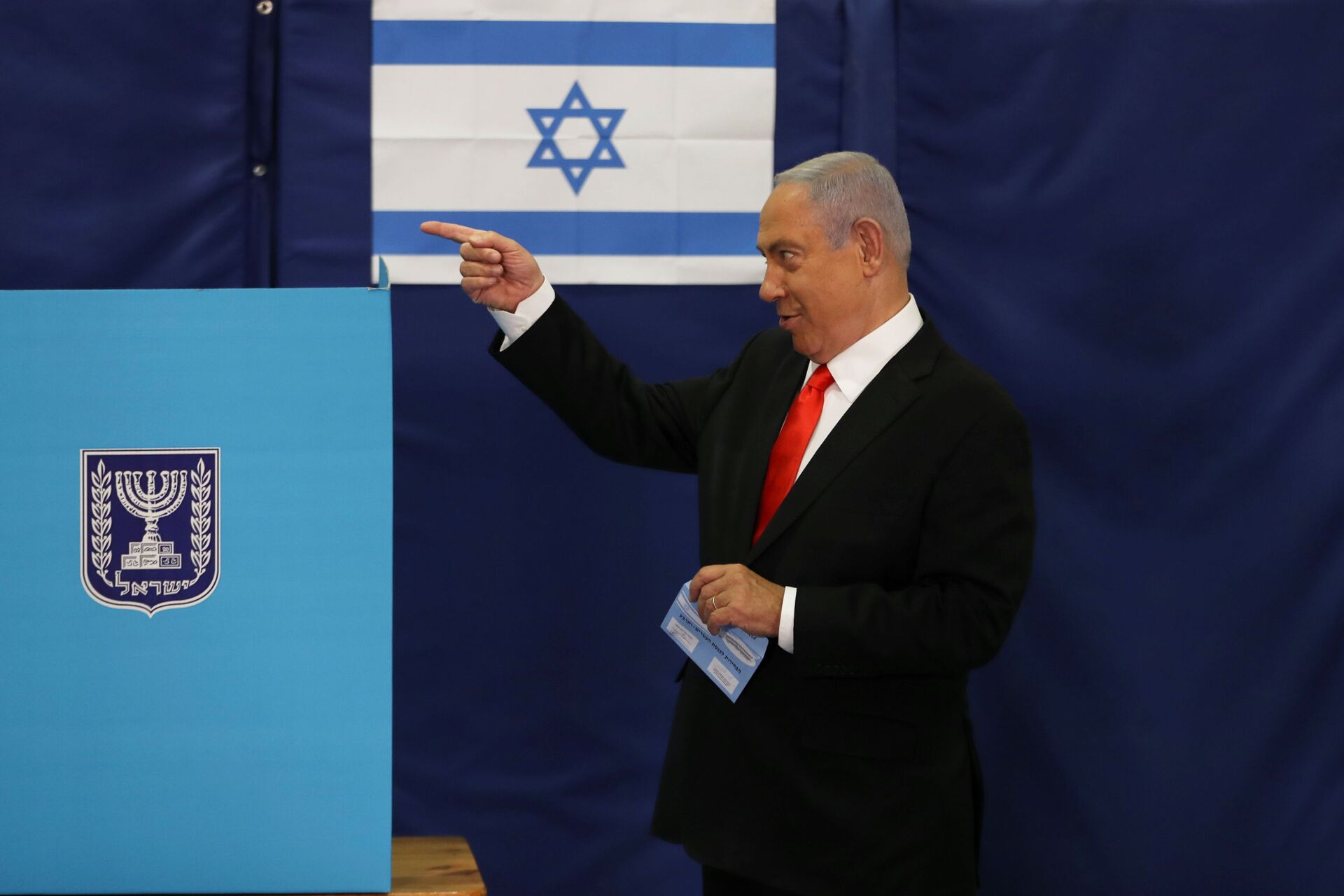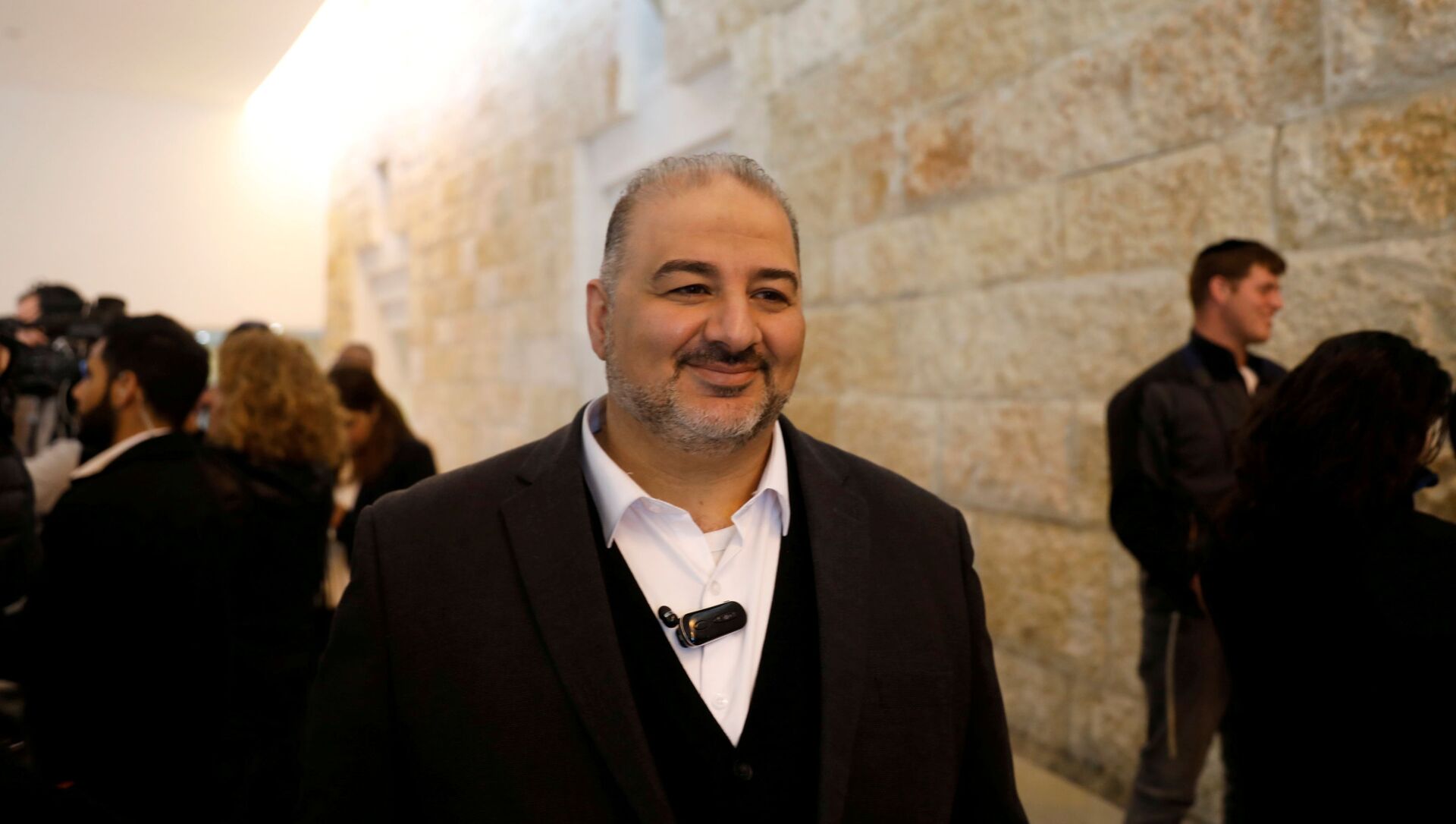The leader of the Religious Zionist Party, Benzalel Smotrich, has ruled out being part of a coalition government under Benjamin Netanyahu if it includes the United Arab List, which is known in Hebrew as Ra’am.
Smotrich wrote on Facebook: "A right-wing government will not be established that is based on Mansour Abbas’ Ra'am Party. Period. Not from within, not from outside, not through abstaining, and not though any other Isra-bluff.”
He added: "Terrorism supporters who deny the existence of the State of Israel as a Jewish state are not legitimate partners for any government."

But who are the United Arab List and why does Netanyahu need them?
With 87.5 percent of vote counted, United Arab List passes electoral threshold, denying Netanyahu a majority | Live updateshttps://t.co/q19JusQ3R9 pic.twitter.com/AtvqYh1FoC
— Haaretz.com (@haaretzcom) March 24, 2021
Israel has been beset by weak government for four years as a series of elections failed to deliver an overall majority to Likud, the traditional opposition Labour Party or a new party, Blue and White, formed by former Israel Defence Force General Benny Ganz.
There are 120 seats in Israel’s parliament, the Knesset, and 61 are needed for a majority.
But no single party has won 61 seats since the formation of Israel in 1948 and in recent years Likud has won around 30 seats and cobbled together a coalition with a variety of right-wing and Jewish religious parties.
Last year Likud won 36 seats and the Blue and White Party won 33, leading to the pair agreeing on a “grand coalition” in which Netanyahu and Gantz would alternate the prime ministership.
Never seen so much airtime by Israeli-Arabs on prime time Israeli TV (@mmagadli, Mansour Abbas & @AfifAbuMuch among others). Something is definitely changing and for the better pic.twitter.com/C4i6jtSjos
— Aaron Magid (@AaronMagid) March 24, 2021
But the coalition disintegrated in December 2020 and the Blue and White Party’s support collapsed at this week’s election, with them winning only eight seats.
Likud won 31 seats, leaving Netanyahu 30 short of a majority.
The Israeli Prime Minister has therefore been forced to look for new coalition partners to team up with along with his usual allies, Shas and Yisrael Beiteinu.
Ksenia Svetlova, a former member of the Israeli Knesset, told Sputnik: "There is no clear winner and there is a big doubt on whether any of the rival political camps are able to form a coalition. It seems to me that Netanyahu has more chances of forming a coalition. At the moment, his future far-right coalition may be entirely dependent on the Islamist Ra’am.”
— Sari Bashi (@saribashi) March 23, 2021
This year, for the first time, Ra’am have broken the electoral threshold - three percent of the national vote - and got their first four Knesset members.
They seem to have gained votes from another Israeli Arab party, the Joint List, who won 15 seats and almost 13 percent of the national vote in 2020 but were left out in the cold by the grand coalition between Netanyahu and Gantz.
This week the Joint List won less than five percent of the national vote but their centre-left, secular agenda is likely to see them team up with the anti-Netanyahu bloc.
But the United Arab List is a more conservative party, whose supporters tend to be religious Muslims, although not as hardcore as Hamas.
— Noga Tarnopolsky (@NTarnopolsky) March 25, 2021
The party’s leader, Mansour Abbas, 46, was born in Galilee in northern Israel and has always described himself as an Israeli Arab, rather than a Palestinian.
The United Arab List supports a two-state solution to the Palestinian problem but has a conservative social agenda and draws much of its support from Bedouin tribesmen.
On Wednesday 24 March Abbas did not rule out giving his party’s support to Netanyahu and said: “We are not obligated to any bloc or any candidate.”
— Mark Judson For Congress - Scorched Earth Dem 2022 (@Judson4Congress) March 23, 2021
A senior leader of Shas, Itzik Cohen, said he would have no problem serving alongside the United Arab List and accused Smotrich of extremism.
But if Netanyahu enlists the United Arab List’s four MPs he stands to lose the Religious Zionist Party’s six MPs and leaves himself no nearer a majority.
So all eyes are now on 71-year-old Netanyahu, who has been Israel’s prime minister since 2009.




